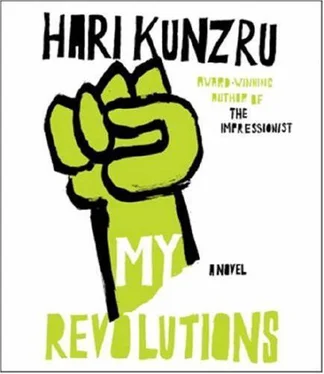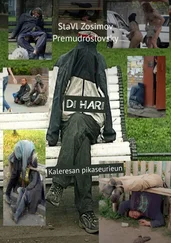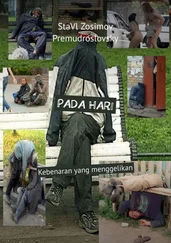On a typical Sunday, Mum would be lying in bed, listening for the rats and cockroaches she suspected were scuttling about in the attic over her head. Dad would sit downstairs with the newspaper and I’d be in my bedroom, attempting to summon the outside world. The first time I fitted the pink molded earpiece of the crystal set into my ear, I heard a tiny crackle, then, very faintly, a voice singing a few words in a foreign language, accompanied by a violin. Like all first things these sounds were powerful. I felt they were being born out of the noise just for me, as if I was creating them through some special skill, coaxing them out of formlessness.
As a hobby, crystal sets occupied me for a year or so. Then, as a birthday present, my parents bought me a Japanese transistor radio. It was like hearing the world think. There were stations on pirate ships out at sea, stations playing advertising jingles and pop music and sports matches. Stern voices read out news items or religious texts, spoke terse messages in accents from the other side of the Iron Curtain. On short wave there were mysterious phenomena, urgent bursts of Morse code, mechanical voices reciting meaningless lists of numbers. I heard whispering, women crying, once a pilot or lost sailor calling, “Come in, please, come in.” There was something angelic in the surf-sound of white noise between stations, the whoop and whine of travel across the bands of the spectrum.
The radio was a way to escape from downstairs, from my deep-sea diving mother, wading in lead boots toward the sink. Aged fourteen, I tuned in to the missile crisis. I call upon Chairman Khrushchev to halt and eliminate this clandestine, reckless, and provocative threat to world peace and to stable relations between our two nations. I call upon him further to abandon this course of world domination, and to join in an historic effort to end the perilous arms race and to transform the history of man. This was it. The Bomb was coming. Making the most of what I thought were my last few hours on earth, I stayed up all night, listening to short-wave artifacts, the noise between stations. Afterward, noise would be all that was left.
After thirty-eight days the crisis ended, and I was still there, lying in bed with my radio. The following year the leaders signed a treaty saying they wouldn’t test nuclear weapons in space or the earth’s atmosphere or the sea; people acted as if this was some kind of victory. But what about the missiles? I wanted to scream. They’re still there, pointing at my house. So when I ran into the couple outside the tube station, with their painter’s table and their colored leaflets weighted down with seaside pebbles, it felt as if I’d found the only other sane humans on the planet. They were old, in their mid-twenties. Colin had a scraggly blond beard and a CND badge pinned to the lapel of his pea coat. Maggie wore a long peasant skirt at which I stared intently, because each time I glanced up at her face, I started to blush. She looked like Leslie Caron, an actress whose picture had recently joined a growing collage on the wall above my bed. Beat-band singers, models, artists: people from the Sunday Times color section, from the new world growing a few miles away in town.
Maggie chatted to an old lady, trying to get her to sign a petition, while I hovered around, reading a leaflet about the government’s advice to householders on protection against nuclear attack. We were to survive using whitewash, brown paper, and dustbin lids. Colin introduced himself, made a joke about what he’d really do if the air raid warning sounded. I liked him. He didn’t speak to me as if I was a child. Nor did Maggie. When I said I wished I could do something, they told me I wasn’t alone. Millions felt the same. If I really wanted to make a difference, I should come over to their house the next day. There would be a meeting. “It’ll be very informal,” said Maggie, “but you’ll get a feel for what’s going on.”
I left with a copy of their newspaper and an armful of leaflets, which I promised to put through doors in Avon Close. That night I read about Distant Early Warning Stations: tropospheric scanners, enormous parabolic dishes looking out over the Yorkshire moors. Two minutes was all they’d give us. Two minutes to do what? Make love to Maggie. As I fell asleep I worked it all
out, in the weird, narcissistic fashion of teenage boys. We’d be on a hill. I had an American accent. Where Colin was in all this I can’t remember.
I also can’t remember much about that first meeting. It must have been taken up with routine administration. Collecting dues. Arranging a speaker. I probably spent most of it staring at Maggie, at the way her mouth moved when she spoke, the shape of her breasts under her sweater. The other members of Ruislip and Northwood CND were a spooky bunch. Elderly Quakers, a vegetarian ex-fighter-pilot. It didn’t matter to me. Thursday evenings now belonged to Maggie and the Bomb, in that order.
Soon I was knocking on doors to tell people about first strikes and secret NATO exercises, fallout and megatonnage, all the thrilling science-fiction pornography of nuclear war. I handed out pamphlets with titles like Six Reasons Why Britain Must Give Up the Bomb and H-bomb War: What Would It Be Like? For the first time I had arguments with adults in which I wasn’t always told to be quiet and respect my elders. Women shut the door in my face and men told me I was a little fool, but sometimes they argued back, shaking their heads as I described the deformities of Hiroshima children, the underground bunkers to which key government personnel would be removed when the sirens sounded. People invited me inside, old people who wanted company, a man who put his hand on my knee and told me I was a likely looking fellow.
The following Easter, a month or two before my sixteenth birthday, I marched to Trafalgar Square, part of a crowd (much smaller, I heard, than previous years, but to me still vast) who felt what I did; who had the imagination to look beyond their never-had-it-so-good daily lives to the threat that lay just over the horizon. We waved placards saying No Polaris . We sang “We Shall Overcome” and “Down By the Riverside.” Mothers wheeled their children in push-chairs. Bands played trad jazz, because trad was authentic. Authenticity meant roots and honesty, but according to Colin it also meant the reality of your death. If you knew — really held it in your mind — that one day you’d die, then the value of
life would be clear, and you’d live fully, deeply. Most people found the thought of death unbearable and fled into the everyday, so most people were only half alive. Colin felt this was why the majority of them seemed to be learning to live with the nuclear threat. That seemed logical to me. If your Being was already infected with Nothingness, annihilation probably didn’t seem so bad.
Authenticity was just one of the things I learned about from Maggie and Colin. They lived in a way I’d never even imagined. Their house, which from the outside looked just like ours, was open to all, and in contrast to the frozen routine of Avon Close, had a joyous and unpredictable rhythm. Even if Colin was working he was happy to open the door and let you make tea in the kitchen, with its jar of spaghetti on the counter and poster of a Picasso dove pinned above the stove. Colin was writing plays. I don’t know how far he ever got, but he’d sit and bang away at an old Remington typewriter on the dining table, making occasional contributions to whatever was happening around him, which might include four or five friends singing and playing guitar, or having a loud debate about Algeria. Maggie would “clear him away” when she wanted to serve dinner, which she did for however many happened to be there, pushing his papers to one side and clattering cutlery onto the typewriter keys to indicate that it was time to lay the table.
Читать дальше












